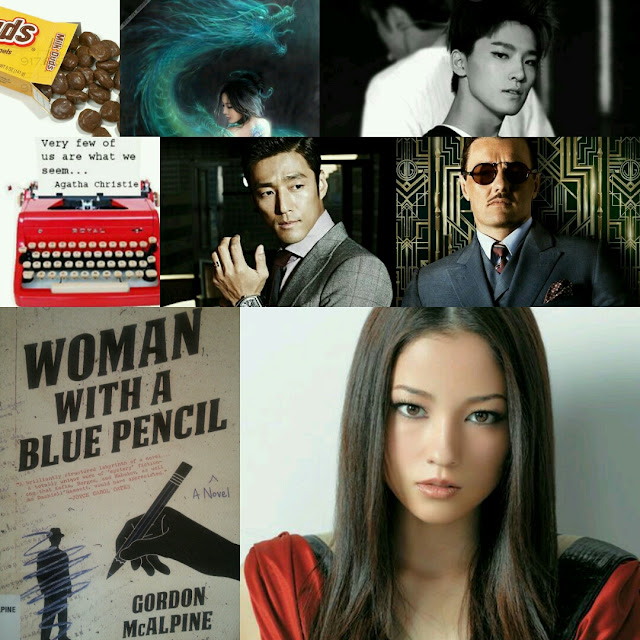That is not the actual cover to Glen Weldon's Batman book. In my humble opinion, I fixed it. I made it into a cover image I wanted to see, just like when I fixed the cover to Michael Moorcock's rubbish Doctor Who novel into something I might keep on my shelf (but I didn't). Who are all those guys cosplaying as Batman? I don't know them. They're not Batman. The new cover - that depicts the Batman.
That's really the point of Weldon's book. The lean page-count is due to the lack of biographical material; the real focus is on the different incarnations of Batman thru the decades, from dark to light to dark to light to dark again snd so on. He's a resilient, nonchalant character - adept at mystery, sci-fi and fantasy stories with a simple turn of the screw. I don't think he really cracks the code as to why that is so, but he's more interested on how audience opinion can influence the lifespan of each incarnation anyway. It's this school of thought where Batman is an idea that exists within the public conciousness..as if he's bigger than comics or films or videogames...Weldon doesn't say it, but the character is recognized the same way globally as Mickey Mouse, James Bond, Sherlock Holmes, Superman, Elvis, Marilyn Monroe and Michael Jackson. He's joined that club. A lot of people don't read the comics, but they are cognizant of the existence of a character named Batman.
It's what Batman is that has the nerds debating about it, and Weldon doesn't quite ridicule those arguments, but it's hinted as very closed-minded thinking. The best depiction of a fully-realized Batman, at his most basic, is the Batman of Batman: The Animated Series. After that, you're probably just going for extremes for the sake telling new stories.
The downside to this book is that it's nothing you wouldn't learn from reading a Wikipedia article. Without biographical material to gain insight into why people who worked on Batman approached the character the way they did, it's very, "...during this run, this guy wrote Batman like this.." And another thing...I seriously doubt anyone enjoys being called a nerd. The bozos selling t-shirts and apparel in an attempt to brand "Geek" "Nerd" and "Spaz" wouldn't be caught dead feigning interest in this stuff if they couldn't make a buck. I don't buy it. It's a slam for knowing anything.
And yet, the fact that people know Batman is what's kept him from stagnating like Superman, Bond and the Mouse. Alan Moore put it best when he described Batman as a character created to appeal to children in 1939 who were reading Superman comics...Batman's longevity is astounding if you consider that he's past his "Sell-by.." date. I don't know if Weldon has seen that distinction between a concept that can survive being branded and still have a place in contemporary fiction...maybe he'd have been hesitant to use the word "nerd" so much...or maybe he doesn't..between the lines, once you get to the end of the book, it feels like he's saying all the Batman stories that could be told have been told.




















